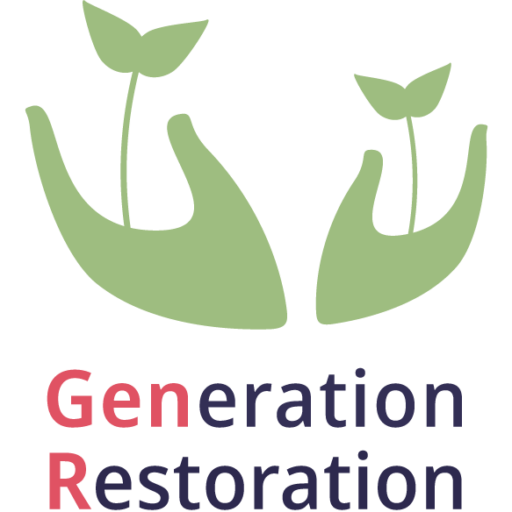
Generation Restoration Roundtable November 2025
On 14 November 2025, Generation Restoration e.V. hosted the sixth edition of the International Roundtable with attendees from diverse organizations around a key question:
«How do we move from extensive conclusions in scaling and standardization to a focused framework?»
Generation Restoration e.V. aims to actively serve as a bridge builder, connecting and supporting the inspiring initiatives that exist within marginalized groups, including both refugees and host communities. Harnessing the experience of grassroots actors, combining common approaches or objectives, framing those for standard-setting, and – ultimately – approaching international organizations for policy definitions are at the forefront of Generation Restoration e.V’s efforts.
While earlier sessions focused on alignment and institutionalization, this Roundtable took the next step: moving toward the foundations of standardization.
The Journey From Scaling to Standardization
This Roundtable built on insights from five previous sessions. Earlier discussions examined themes such as seed sovereignty, impact measurement, and resource coordination.
In May, participants explored the first stage of standardization — alignment — and in August, the focus shifted toward institutionalization and pathways for long-term systemic change.
The November session brought the strands together, inviting participants to reflect on how these insights could form the basis of consistent standards for regenerative action in refugee settings. After reviewing their pre-submitted documents, the group synthesized the most essential learnings from all preceding Roundtables.
Video recording of the Generation Restoration roundtable on November 14, 2025.
Main Challenges & Solutions
Through collective brainstorming, participants identified key challenges in collaborations between refugee-led grassroots organizations (GROs) and large international actors.
Working With INGOs & IOs: Opportunities and Barriers
Challenges
Sudden changes in requirements or reporting expectations
Limited capacity for monitoring and evaluation
Lack of in-person engagement from funders
A significant visibility gap for local organizations
Limited digital infrastructure (e.g., laptops, reliable internet)
What is needed
Partnerships that create value for both sides
Realistic, transparent project and budget planning
Multi-year funding instead of short project cycles
Fairer distribution of funding between INGOs and GROs
Access to digital tools and long-term capacity building
Cultural sensitivity and deep understanding of the local context
The conclusion: Standardization can only succeed if collaboration happens on equal footing.
Working With Government Actors
Participants also explored what makes collaboration with government bodies difficult — and what could improve it.
Challenges
Lengthy bureaucratic procedures and rigid requirements
Limited support if GROs lack visibility or infrastructure
Political interference and informal expectations
Unfavorable land allocation for refugees
Insufficient communication channels between government and local organizations
What is needed
Joint planning platforms between governments and GROs
Better information flow to the grassroots level
Technical and institutional support to meet government requirements
Genuine localization: direct funding, equitable partnerships, and co-design
First Answers to the Core Question: What Could Be Consistent Across Camps?
In collaborative sessions, participants generated initial ideas for standards and practices that might be transferable across contexts:
Early elements of cross-camp consistency
Awareness-raising campaigns (e.g., soil fertility, seed saving)
Peer learning circles within camps
Regular virtual knowledge-sharing sessions
Practices for shared resource management
A recurring insight was that local exchange is often hindered by lack of transport or food provision — another reason to explore virtual exchange formats in the future.
The November Roundtable marks an important step toward building a shared framework for regenerative approaches in humanitarian contexts.
Participants will continue refining ideas until February, particularly around practices and protocols that could effectively support GROs across diverse camps.
Join the movement
Coordinating these efforts is the motivation and reasoning behind the establishment of Generation Restoration e.V.
Important Links to follow-up:
- Join WhatsApp Group of the Roundtable
- Join Linkedin Group of Generation Restoration
- Share your projects with us (send them to vorstand@gen-r.de)
- Subscribe for news at www.GenR.world
- Distribute the information among your personal and professional network

